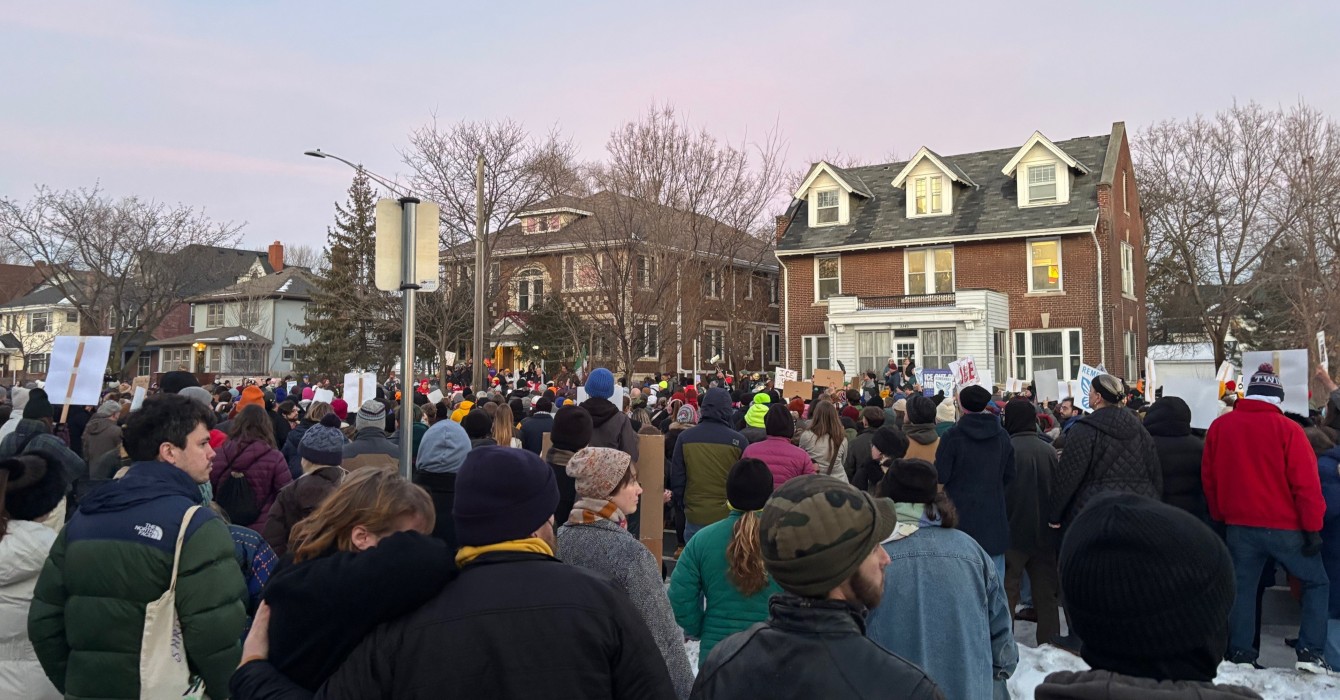Words from Paul’s first letter to the Corinthians have been on my mind lately. Most days and evenings, my husband and I, along with our two working-from-home sons, move from Zoom to Zoom.
“For now we see in a mirror, dimly, but then we will see face to face. Now I know only in part; then I will know fully, even as I have been fully known” (I Corinthians 13:12).
The truth is, I lean into the screen and see only dimly. Yes, I love seeing dear faces, but I long for the days when we will meet in person as colleagues, church, family and friends. Then we will all be more fully known.
Meanwhile, I am resigning myself to Zooming for the long haul.
If we must Zoom, how do we do it well and graciously? As someone who loves to think about in-person hospitality, I’ve been fielding a lot of questions lately about what good online hospitality looks like.
While I’m still in beginner’s mind, I’ve noticed that good online hospitality is not magic. Nor is there one single formula for success. And while doing our technical best for any online gathering is an important sign of respect for our audiences -- an important part of hospitality -- technology is not the heart of hospitality. You don’t need a computer science degree or fancy equipment to provide it well.
Instead, online hospitality is the dedicated effort to create the same ethos as in-person hospitality -- but in a new land. For Christian hospitality to work -- in person or online -- it needs to be grounded in setting a place for God, paying attention, honoring participants and expecting transformation.
First, warmly welcoming participants to a Zoom gathering reflects that the love of God is present. Three tiny ants crawled out of the crevices of my son’s laptop the other day. Where ants can go, my guess is the Holy Spirit can go as well! God is with us, even in virtual settings.
Though not the same as the gathered-in-the-same-room body of Christ, the gathered-over-Zoom body can still experience an embodied welcome through the host’s facial expressions, laughter and gestures. You don’t want participants to mistake your expressionless face for a frozen screen.
As a virtual host, be clear about what will occur in the meeting, how participants can access what they need, and who will help them with technical glitches. This information, set out at the start, helps participants feel safe and cared for, and less anxious about their technical skills.
Consider offering social time 15 minutes before your meeting starts. The energy and warmth generated by this experience of informal chatter and fellowship will set the mood for the meeting that follows.
I watched a worship service last week where different segments were set in the homes of various pastors on the church’s staff. Each had carefully set the stage behind him or her -- a vase of flowers next to a cross, a special cloth laid carefully on a small table, a set of candles beside a bowl of water. These details conveyed hospitality; they expressed a personal welcome that said, “You are in my home, and this too is sacred space!”
Second, good hospitality is about paying attention. How are others experiencing the format? One participant in a church formation group stopped coming because she saw only couples in each Zoom box and it reminded her painfully that she was the only “singles” face in a box. She had to see her singleness the entire time. How might you change her experience?
Pay attention to power dynamics and ways to flatten that curve. For those whom society has often silenced, how might it feel to know that the host can mute you? The chat function helps mitigate this by giving everyone an always-open avenue of expression. The host can also invite everyone to speak and make sure that no one voice is dominating. Even if you’re good at this in person, facilitating over Zoom takes practice.
Likewise, after you’ve placed participants in a breakout room, don’t automatically cut them off after the designated time. Instead, as host, visit each room and remind participants of the time limits or send a group message. This is more hospitable and more like what a host would do if participants were in a room together physically.
Pay attention to the ways in which tangible elements can unify us and bridge the gap of physical absence. One of my colleagues sent a piece of cloth in the mail to each participant so that everyone’s laptop would be resting on the same fabric. Similarly, you might have everyone light a candle for worship or as a symbol of a unified space. Each person could share a personal object and describe why it is meaningful. Even a bark from a neighborly dog in the background can root us to reality and be grounding and humanizing in a virtual world.
Third, good online hospitality honors participants. For longer Zoom events, consider sending a gift box ahead of time, with nice paper for note taking, a coffee mug, a bag of trail mix or some other small gift. The boxes need not be expensive; rather, they are a signal that you honor the participants and recognize that life and gatherings are more difficult for everyone these days. A pastor friend of mine drives through her town and places bags of pre-Zoom activities on the front porches of her congregation’s youth.
A sense of timing is also important for honoring bodies in virtual gatherings. We can’t simply roll over onto Zoom what we would normally do in a room. Zooming all day is exhausting. Zooming for half the day is exhausting. Keep whatever you do as short as possible and add stretch breaks, polls, screen-sharing times, music, play breaks, small groups or silence. Teach people to do the wave!
Set up trust with your audience. Those with social anxieties have a double burden to bear in these times. Honor all participants though your kindness and patience, especially those who may need to step away from being looked at for the entire meeting. Be kind as internet connections go out, cats jump onto shoulders, and children decide they need mom or dad NOW.
Finally, good online hospitality affirms that whenever and wherever God is welcomed in, God provides transformation. God’s work is still being accomplished even with so many of us confined at home.
For example, I’ve discovered that online meetings in a quarantine provide the blessing of multiplied hospitality -- the hospitality of the host and that of all the households into which we are welcomed. As host, you may receive joy and blessing through all the other hosts who welcome you into their homes for the hour. Let them describe the history of the quilt on the chair, that plaque on the wall or the garden shed into which they are scrunched, seeking quiet space!
Online meetings are here to stay. Post-pandemic, we’ll continue to have options to work at home, because it’s cost-effective. We’ll continue to have online church committee meetings, because attendance is up. We’ll continue to meet as friends on Zoom, because some are unable to drive, travel or be away from home. So we might as well get it right.
Meeting virtually can be more than “see[ing] in a mirror, dimly,” if we offer good online hospitality and understand it as sacred space.























